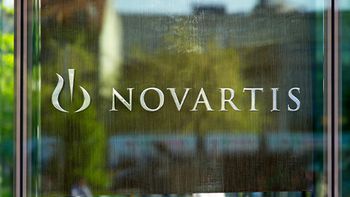
Intelligent Hospital Systems buys AmerisourceBergen unit, shaking up pharmacy-automation field
IHS, hereafter to be known as ARxIUM, will expand its injectable-compounding business to include oral solids
Generally speaking, pharmacy automation systems free pharmacists from the drudgery of counting out pills into a plastic bottle for patients, and have been in common use at larger pharmacies for many years. For injectables that need to be measured out patient by patient, though, most hospital pharmacies, and many specialty pharmacies that dispense injectables, continue to do this manually. With the growth of specialty injectable compounding (for oncology products in particular), this manual step led to the growth of bulk compounding pharmacies—and that, in turn, led to the
Intelligent Hospital Systems (Winnipeg, MB) has been offering an injectable-compounding unit for several years, the RIVA system, that automates the compounding process. Larger hospital systems that don’t want to outsource their injectable compounding to other pharmacies can now install the multimillion-dollar machine and fill prescriptions essentially around the clock. Now that company, renamed as ARxIUM, has acquired the pharmacy-automation business of AmerisourceBergen Technology Group (Buffalo Grove, IL) for an undisclosed price, and is repositioning itself as a comprehensive provider of pharmacy automation technology.
The company’s news release emphasizes the value of ABTG’s RxWorks software, which has a variety of modules for managing the workflow in pharmacies, from dispensing to inventory management. But it also includes machines for handling oral solids, branded as FastFill and others. CEO Dr. Niels Erik Hansen says that the company can now offer “a car with all four wheels” to hospital and other pharmacies. The RIVA system includes elaborate isolation and sterilization components to prevent cross-contamination and the presence of infectious agents, and includes barcoding to synch with hospitals’ internal tracking systems of dispensed pharmaceuticals.
Hansen touts the fact that in January, Australia’s Therapeutic Goods Administration (TGA)—the equivalent of the US’ FDA—has reviewed and approved an implementation of RIVA there, in effect bringing the process under approved cGMP practices in that country. That approval highlights the gray area in which pharmacy compounding operates in the US, in that FDA does not regulate pharmacy practices per se, but now, under the regulatory changes made by the Drug Quality and Security Act of 2013 in the aftermath of the NECC scandal, has set up a system where high-volume compounding pharmacies can
The presence of these automation systems (both for oral solids and injectables) raises the question of whether pharma manufacturers are interested in packaging their products for use in automated systems. That already occurs for some oral solids, from some manufacturers, but Hansen says that the manufacturing tolerances for injectable vials, bottles and bags are such that they don’t work well in automated systems like RIVA. “We might start to have a dialogue with manufacturers now,” he says, “because such integration could save pharmacies significant money, and reduce healthcare costs.”
Newsletter
Stay ahead in the life sciences industry with Pharmaceutical Commerce, the latest news, trends, and strategies in drug distribution, commercialization, and market access.




